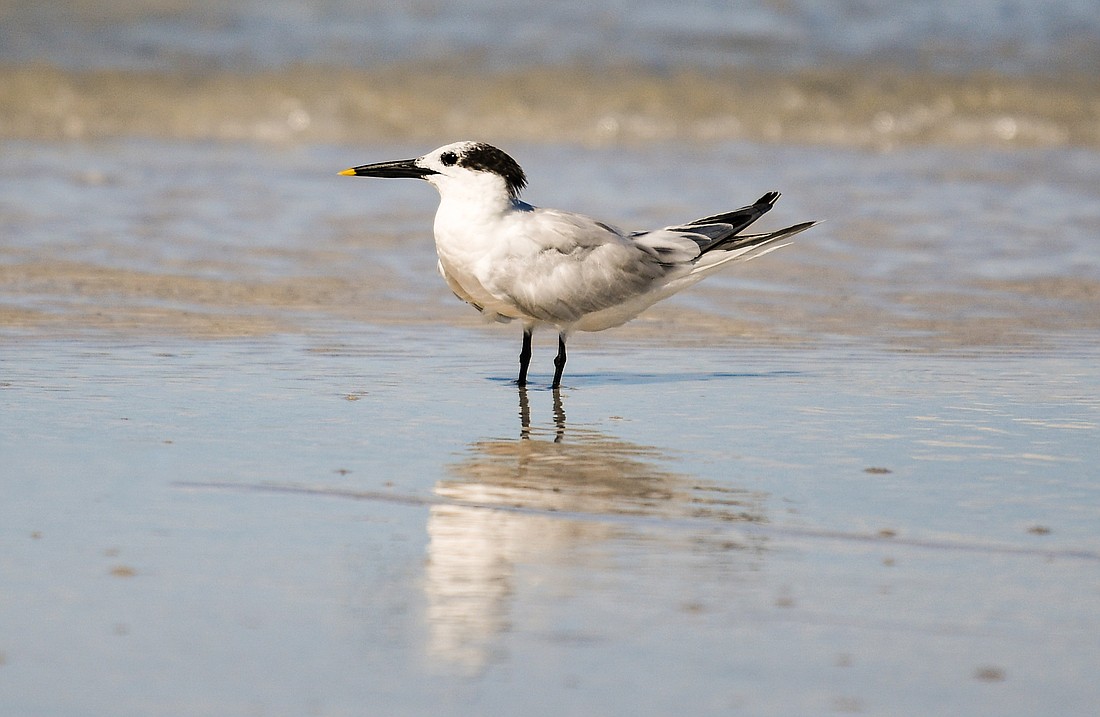- April 30, 2024
-
-
Loading

Loading

With their ragged black caps, mustard-yellow tipped bills, and sleek bodies, sandwich terns stand out among other members of Laridae, the family of gulls and terns. Named for the town in England where they were first described, the lunch-staple reference is nonetheless a useful identification mnemonic.
Rarely seen inland, they mostly eat fish and shrimp, which they catch by flying over water, bill pointing down, then plunge-diving to snag their prey. Indeed, foraging sandwich terns are a great indicator that bait fish are in the area.
Once common nesters on our shores, sandwich terns disappeared from Florida in the late 19th century, partly as result of the millinery trade but also likely due to egg collecting. At the time, oology, the study of bird eggs, was popular. Naturalists and hobbyists around the world collected the eggs of wild birds for display in private collections and museums. Though this was clearly detrimental to all birds, shorebirds, such as sandwich terns, which “conveniently” nest in large colonies on the ground, were especially vulnerable.
Today, nests and eggs of wild birds are protected under the Migratory Bird Treaty Act.
And many vintage egg collections are displayed in museums or research institutions, where they help us better understand birds, and the effects of environmental change and pollution. Indeed, such studies demonstrated that, after DDT came into wide use in the 1940s, egg shells became thinner, with dire effects for viability. This is because metabolizing DDT resulted in less calcium being deposited in egg shells. Thanks to such studies, DDT was banned in the U.S. in 1972 and birds began to recover.
Save our Seabirds is a non-profit organization whose mission is to rescue and rehabilitate sick and injured birds, releasing as many as they can, while educating our community about avoiding injuries and preserving habitats.